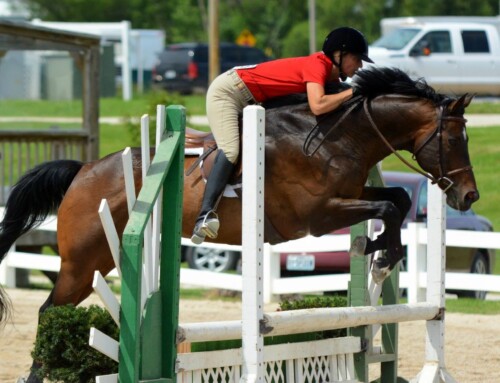In response to outbreaks of the equine herpes virus (EHV), aka rhinipneumonitis, several of the large show management groups recently started requiring exhibitors to have their horses vaccinated for EHV every 90 days, but no closer to the show than 7 days and the vaccination could not expire during the show.
This is contrary to the recommendations of the American Association of Equine Practitioners (AAEP) and the vaccine manufacturers, all of which recommend vaccination annually for horses with limited exposure and every 6 months for horses who travel off the farm to shows and for horses who live with many horses coming and going.
Vaccinations done more frequently than every 6 months may result in increased incidences of adverse reactions such as injection site reactions, skin hypersensitivity, fevers, and signs of colic. There is no current vaccine that has a label claim for control of the neurological form of EHV-l.
The USEF addressed this issue by passing a rule that specifies shows may not require vaccinations any closer than 6 months prior to the show.
It requires horses be vaccinated against EHV and equine influenza in order to be eligible to show at USEF sanctioned competitions. The vaccination dates are usually written on the horse’s health certificate or noted on a paper with the veterinarian’s letterhead. Exceptions are horses certified by a veterinarian that have a history of adverse reactions, in which twice daily temperature logs are kept on the horse prior to and during the show.
This rule takes effect in 2016.
Sue Webster for Nancy Roth, DVM


